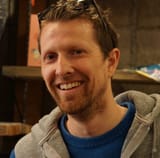The Simulation Hypothesis – Are We Living in a Simulated Reality?
The simulation hypothesis posits that reality as humans perceive it may be an artificial construct created by a technologically advanced civilization.

This concept, which bridges philosophy, theoretical physics, and computational theory, suggests that the universe operates under programmed rules analogous to a computer simulation. Proponents argue that exponential advances in computing power, quantum mechanics’ peculiarities, and mathematical underpinnings of physical laws lend credence to this hypothesis[1][2]. Critics, however, highlight its unfalsifiability, the absence of empirical anomalies, and the self-defeating nature of its foundational assumptions[3][4]. This report examines the hypothesis’ historical roots, theoretical frameworks, scientific evidence, and philosophical implications, concluding that while the idea remains speculative, it challenges fundamental assumptions about consciousness, reality, and humanity’s place in the cosmos.
Historical Development of the Simulation Hypothesis
Ancient Philosophical Precursors
The notion that reality might be illusory dates to antiquity. Plato’s Allegory of the Cave (c. 380 BCE) conceptualized humans as prisoners mistaking shadows for reality, framing perception as a limited projection of a higher truth[1:1][3:1]. Eastern philosophies like Maya in Hinduism similarly posited the material world as a divine illusion. These early ideas lacked technological analogies but established skepticism about sensory reality’s authenticity.
In the 17th century, René Descartes’ evil demon thought experiment questioned whether an omnipotent deceiver could fabricate sensory input, presaging modern simulation theory’s focus on perceptual manipulation[3:2][5]. However, these metaphysical speculations remained divorced from empirical science until the 20th century.
Modern Computational Frameworks
The hypothesis gained scientific traction with computing’s rise. John von Neumann’s 1940s cellular automata models demonstrated simple rules could generate complex systems, hinting that reality’s laws might resemble code[2:1][6]. In 1989, physicist John Archibald Wheeler proposed the “it from bit” doctrine, suggesting information underpins physical reality—a cornerstone of simulation arguments[2:2][7].
Philosopher Nick Bostrom’s 2003 paper Are You Living in a Computer Simulation? formalized the hypothesis probabilistically. His trilemma asserts: (1) civilizations rarely survive to posthuman stages, (2) posthumans avoid ancestor simulations, or (3) we likely inhabit a simulation[3:3][8]. Bostrom calculates that if posthumans run vast simulations, simulated minds would outnumber biological ones, making (3) statistically probable[3:4][9].
Philosophical Foundations
Bostrom’s Trilemma and Anthropic Reasoning
Bostrom’s argument hinges on three propositions, one of which he claims must be true:
- Extinction: Humanity fails to reach a “posthuman” stage capable of creating simulations.
- Disinterest: Posthuman civilizations choose not to run ancestor simulations.
- Simulation: We almost certainly live in a simulation[3:5][8:1].
If posthumans exist and simulate ancestors, simulated realities would vastly outnumber base reality. Anthropic reasoning suggests we’re likely among the simulated majority unless simulations are impossible or unethical[3:6][9:1]. Critics counter that this assumes simulations’ feasibility and posthumans’ motives without evidence[4:1][10].
Consciousness in Simulated Realities
A key challenge is whether simulated beings possess consciousness. Philosopher David Chalmers argues that if simulations replicate neural processes, subjective experience would emerge, making simulated minds “real”[10:1][5:1]. However, integrated information theory (IIT) posits consciousness arises from specific physical systems, implying simulated brains might lack qualia without isomorphic hardware[4:2][10:2]. This debate remains unresolved, as consciousness’s nature is itself contested.
Scientific Perspectives
Quantum Mechanics as Simulated Code
Quantum phenomena provide intriguing parallels to computational systems. The discretization of energy, time, and space into Planck units mirrors digital pixels, suggesting a finite resolution to reality[2:3][7:1]. Wavefunction collapse upon observation resembles rendering processes in virtual environments, where unobserved regions remain unprocessed[2:4][11]. Quantum entanglement’s “spooky action” could reflect non-local data access in a simulation’s central processor[2:5][5:2].
Melvin Vopson’s Second Law of Infodynamics proposes that entropy in information systems decreases, contradicting thermodynamics’ second law. His analysis of SARS-CoV-2 mutations suggests genetic changes minimize information entropy, implying an optimization algorithm[7:2]. If universal, this law might indicate a simulation’s data compression protocols[7:3].
Computational Limits and Cosmology
Simulating a universe requires unimaginable resources. Physicists Zohar Ringel and Dmitry Kovrizhin demonstrated that quantum systems’ complexity exceeds classical computing capacity, suggesting even posthuman simulations would approximate reality coarsely[4:3][8:2]. However, Lloyd’s quantum computing model posits the universe itself as a quantum computer, where particles act as qubits executing cosmic code[2:6][5:3].
Cosmological fine-tuning—the precise calibration of physical constants enabling life—aligns with simulation arguments. A programmed universe might optimize these parameters, whereas a natural one would likely exhibit randomness[11:1][8:3]. Critics counter that the multiverse theory better explains fine-tuning without invoking simulators[4:4][5:4].
Empirical Tests and Technological Feasibility
Detecting Simulation Artifacts
Proposed experiments seek “glitches” or computational shortcuts. A simulated universe might approximate physics at observable scales but cut corners in obscure regimes. For example, high-energy cosmic rays could reveal lattice discretization errors if spacetime is pixelated[2:7][7:4]. The mass-energy-information equivalence principle suggests information has measurable mass; erasing data from particle-antiparticle annihilations might detect informational substrates[2:8][7:5].
Vopson’s work predicts information mass at 10⁻⁵¹ kg per bit. Experimental validation using particle colliders could confirm this, supporting the simulation hypothesis[7:6]. Similarly, anomalous entropy reduction in biological systems might expose optimization algorithms[7:7].
Recreating Reality in Silico
Human progress toward simulation offers indirect evidence. Current simulations like climate models and molecular dynamics approximate real systems with increasing fidelity. If humanity develops ancestor simulations, it would bolster Bostrom’s trilemma by demonstrating feasibility[6:1][5:5]. However, simulating consciousness remains a barrier. Neuromorphic computing and AI advances might bridge this gap, raising ethical dilemmas akin to those posited for posthumans[9:2][6:2].
Criticisms and Counterarguments
Unfalsifiability and Pseudoscience Claims
The hypothesis’ unfalsifiability renders it non-scientific under Popperian criteria. As physicist Sabine Hossenfelder notes, any anomaly could be dismissed as part of the simulation, insulating the theory from refutation[3:7][12]. Philosopher Barry Dainton argues that neural simulations (brains-in-vats) are more plausible than full-universe simulations, but these still require untestable assumptions about base reality[3:8][10:3].
Self-Defeating Logic
If the hypothesis undermines empirical science’s reliability, it also invalidates the technological predictions underpinning its own plausibility. Anderson (2023) argues that accepting the simulation hypothesis defeases trust in physics and computing principles used to justify it[13]. Similarly, simulating a universe as complex as base reality offers no computational advantage, negating Bostrom’s statistical argument[4:5][12:1].
Ethical and Resource Barriers
Even if posthumans could simulate ancestors, ethical concerns might deter them. Creating conscious beings trapped in simulated suffering raises moral issues absent in non-conscious AI[9:3][8:4]. Additionally, Dyson’s computational limits suggest simulating a universe would require energy exceeding base reality’s resources, making it impractical[3:9][8:5].
Cultural and Ethical Implications
Media and Public Perception
Films like The Matrix (1999) popularized simulation tropes, conflating philosophical hypotheses with dystopian fiction. Elon Musk’s assertion of a “99.9% chance” we live in a simulation reflects tech culture’s fascination with transcending human limits[3:10][5:6]. However, sensationalism risks trivializing the hypothesis’ scientific and philosophical nuances.
Existential and Metaphysical Questions
If reality is simulated, what obligations do simulators have toward simulated beings? The hypothesis blurs boundaries between creator and creation, challenging religious and ethical frameworks. Conversely, it might offer solace by attributing cosmic fine-tuning to purposeful design rather than luck[11:2][8:6].
Conclusion
The simulation hypothesis remains a provocative yet unproven conjecture. While quantum anomalies, computational parallels, and statistical arguments lend plausibility, the theory’s unfalsifiability and self-referential weaknesses limit its scientific utility. Nonetheless, it catalyzes interdisciplinary dialogue, pushing researchers to explore consciousness, reality’s mathematical foundations, and humanity’s trajectory. Future advances in quantum computing, entropy measurement, and AI ethics may illuminate these questions, but for now, the hypothesis endures as a testament to human curiosity about existence’s ultimate nature.
https://quantumzeitgeist.com/5-minute-guide-to-the-simulation-hypothesis/ ↩︎ ↩︎
https://www.port.ac.uk/news-events-and-blogs/blogs/developing-enhanced-technologies/how-to-test-if-were-living-in-a-computer-simulation ↩︎ ↩︎ ↩︎ ↩︎ ↩︎ ↩︎ ↩︎ ↩︎ ↩︎
https://en.wikipedia.org/wiki/Simulation_hypothesis ↩︎ ↩︎ ↩︎ ↩︎ ↩︎ ↩︎ ↩︎ ↩︎ ↩︎ ↩︎ ↩︎
https://www.reddit.com/r/askphilosophy/comments/7a2woc/what_are_some_strong_criticisms_of_the_simulation/ ↩︎ ↩︎ ↩︎ ↩︎ ↩︎ ↩︎
https://builtin.com/hardware/simulation-theory ↩︎ ↩︎ ↩︎ ↩︎ ↩︎ ↩︎ ↩︎
https://blog.gopenai.com/the-simulation-hypothesis-44623c5e6ee5 ↩︎ ↩︎ ↩︎
https://www.popularmechanics.com/science/environment/a60553384/covid-simulation/ ↩︎ ↩︎ ↩︎ ↩︎ ↩︎ ↩︎ ↩︎ ↩︎
https://www.earth.com/news/simulation-hypothesis-are-we-living-in-a-computer-simulation/ ↩︎ ↩︎ ↩︎ ↩︎ ↩︎ ↩︎ ↩︎
https://bigthink.com/thinking/why-the-simulation-hypothesis-is-pseudoscience/ ↩︎ ↩︎
https://philosophy.stackexchange.com/questions/116661/what-is-the-strongest-argument-to-debunk-bostrom-s-simulation-hypothesis ↩︎





